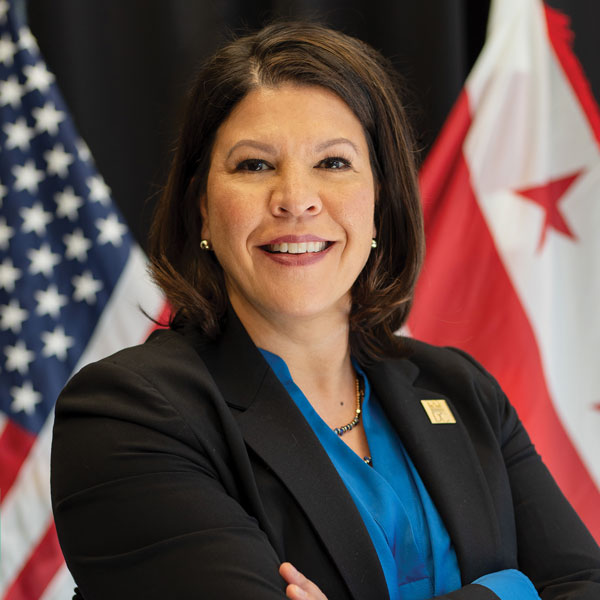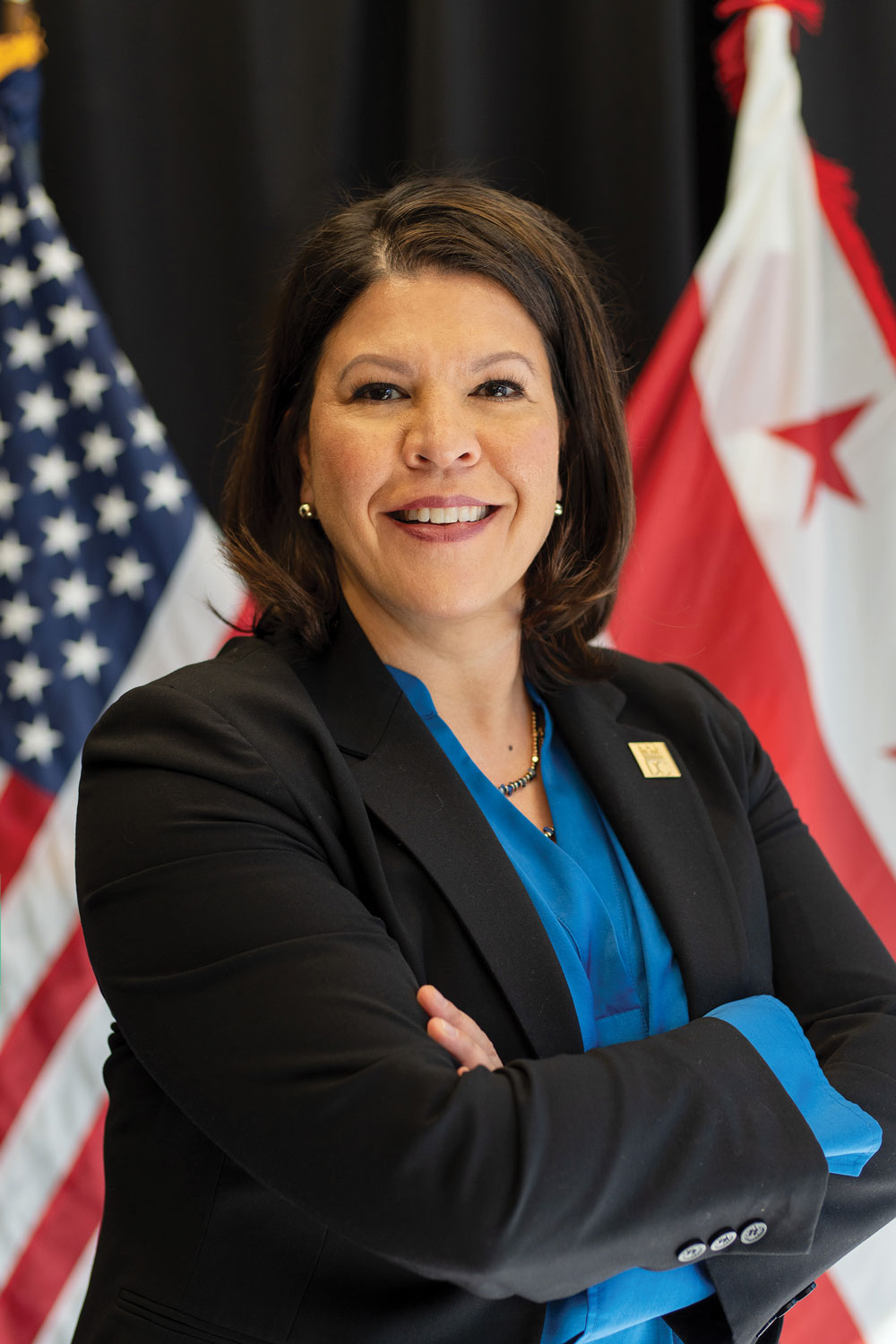DC is working ahead of schedule to build a welcoming city for all.
As Deputy Mayor for Planning and Economic Development, Nina Albert presides over Washington, DC’s efforts to diversify the local economy, retain the city’s talent base and achieve DC Mayor Muriel Bowser’s economic growth and housing goals.
In a recent conversation with Deputy Mayor Albert, she talked about the importance of creating a place where corporate executives and workers alike would want to live, play and perform their trade. What follows is an edited transcript of that discussion.
When you meet with company executives who are contemplating an investment opportunity or expansion decision in the District, what is your pitch?
DEPUTY MAYOR ALBERT: DC has consistently been ranked as a top city to live, work and play. We are a region that is connected by world-class infrastructure. We are incredibly livable. I tell companies to look at how accessible business-to-business relationships are here, and how accessible the powers of government and industry are here. Plus, they will have access to highly skilled talent needed to support their business. People move to DC for its quality of education, diversity of housing options and work-life balance. You can live in a global city and still have a home with a yard. In short, my pitch to CEOs and other business leaders is about people, access and B2B opportunities.
How are you building the tech future of DC?
DEPUTY MAYOR ALBERT: The District already has a very diverse economy and we are looking to lean into that even more. We are widely recognized as a top five tech community, powered by the second highest concentration of tech workers of any city in the country. Whether you’re a first-time founder in AI, a serial entrepreneur in cybersecurity or the executive of a fast-growing life sciences company, DC offers a flourishing technology ecosystem that provides you access to world-class talent, capital and industry partners that will help you start, move and grow your business. We are committed to accelerating that growth in the years ahead.
How will the DC Venture Capital Program help grow new tech companies and help improve the fortunes of historically disadvantaged citizens in the city?
DEPUTY MAYOR ALBERT: That is an exciting new program with $26 million of seed capital, that is expected to be matched by an additional $26 million, for a total $52 million venture fund of funds to invest in early-stage tech companies in DC. We are seeing excitement from the tech sector for this program — 57 venture capital firms from across 16 states applied for capital to support DC startups in 2025. This will become a pretty significant pool of equity to fuel innovation and growth.
How important is the development of new sports and entertainment products and venues in the District?
DEPUTY MAYOR ALBERT: DC is the nation’s sports capital, with teams across every major league — including the Commanders (NFL), Nationals (MLB), Wizards (NBA), Capitals (NHL), Mystics (WNBA), D.C. United (MLS), the Washington Spirit (NWSL), the Washington Freedom (MLC) and even the D.C. Pickleball Team (MLP). We also host the Mubadala Citi DC Open, the world’s only combined ATP and WTA 500-level tennis tournament. In 2022, sports generated $5 billion for DC’s economy and attracted 7.4 million visitors in 2023. We’re proud to have both men’s and women’s professional teams in soccer and basketball, and to expand into emerging leagues like pro cricket and pickleball.
Most recently, in 2024, we announced a $515 million investment to renovate Capital One Arena and in September 2025, we announced that the Washington Commanders will be returning to Washington, DC, where they will build a new state-of-the art stadium and nearly 6 million square feet of mixed use development. We’re transforming 180 acres along the Anacostia River into a hub for jobs, housing, and economic opportunities. Our investment in sports and entertainment is critically important to DC’s economy and culture and positions DC as a global destination.
The Mayor has a stated goal of adding 15,000 new downtown residents by 2028. How will the Housing in Downtown program help the city achieve that goal?
DEPUTY MAYOR ALBERT: Downtown DC represents an opportunity to change a predominantly commercial/office neighborhood into a mixed-use neighborhood. Our Housing in Downtown program has been very successful since it launched a year ago and we have announced eight office-to-residential conversions supporting over 1,700 units. The program also includes a provision for Inclusionary Zoning, to ensure that we are building in affordability into these projects. As we anticipate major redevelopment opportunities ahead of us, the District continues to expand its housing supply in Downtown and in our major neighborhood projects, such as the Reservoir District, RFK Campus (where the Commanders stadium will locate), Poplar Point, Barry Farm and St. Elizabeths, to name a few. By bringing more people to live downtown and across all eight wards, other uses will follow, such as retail, restaurants, hotels and civic/community uses.

“People are happy to find the quality of education, different kinds of housing options and work-life balance that they can experience in the District. You can live in a global city and still have a home with a yard.”
— Nina Albert, Deputy Mayor for Planning and Economic Development for the District of Columbia
How will the Office to Anything program help reposition vacant office properties into new commercial uses?
DEPUTY MAYOR ALBERT: We recognized that office-to-residential conversions was only one possible reuse option and that Downtown DC needed to incentivize all forms of adaptive reuse, including hotel, retail and even trophy office. Office to Anything (the official name is the Central Washington Activation Program) is DC’s incentive program to convert office to anything other than residential. Rather than a tax abatement, it is a tax freeze for up to 15 years. We are seeing some retail and entertainment conversions, as well as a trophy office conversion.

